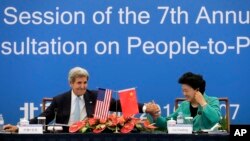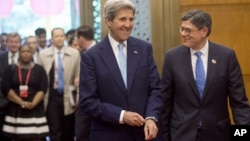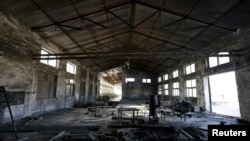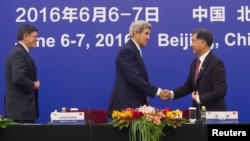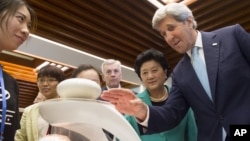The Strategic and Economic Dialogue has helped the United States and China build an expansive cooperation network; but, as the two sides are finding a growing number of fields in which to cooperate, the business climate in China for U.S. and foreign companies is worsening.
After two days of high-level talks between scores of officials from both sides, Washington and Beijing talked frankly about their differences and the need for more progress.
“American companies operating in China have expressed growing concerns about the business climate and it is important that our two countries continue to engage with one another and our respective business communities,” said U.S. Treasury Secretary Jack Lew.
It wasn’t the first time Lew brought up the issue, noting as others have, the increasingly complex regulatory environment U.S. and foreign companies face in China and the bigger question of whether they are welcome.
Business sentiment sapped
The United States and China have been holding the high-level talks for more than a decade to try to manage what some argue is the world’s most important and complex relationship.
Under U.S. President Barack Obama, the talks were upgraded to include a strategic element. And while addressing economic frustrations has long been a key component of the talks, the overall environment in China has gradually been worsening.
Business groups in China have documented a decline in the business atmosphere. On Tuesday, just as the meetings were wrapping up, the European Chamber of Commerce in China released its annual business survey. The report said its members were anxious about the "increasingly hostile" business environment in China.
According to the survey, 70 percent of the respondents said they feel less welcome now than they did 10 years ago.
"After years of speaking of a level playing field, many of us don't see any change and think it's still rhetoric," said European Chamber President Joerg Wuttke during the release of the survey.
The survey also showed that 11 percent of European businesses were planning to shift their investments to other countries, and 40 percent of them planned to cut costs, which may include laying off workers. It also said, however, that 55 percent would increase their investment here if they had more access.
Two-way street?
While China is seeing tremendous growth in its investments overseas, American and foreign companies are still banned for a wide range of sectors here. It is an issue the American Chamber of Commerce in China addressed in a statement prior to the talks.
"As Chinese investment into the U.S. continues to grow, our members note the unequal market access allowed their Chinese competitors," said AmCham China chief James Zimmerman. "We hope China will appreciate the value of fostering a dynamic, open investment environment, with China feeding its economy with foreign investment and know how, rather than starving it."
In an earlier survey conducted by the American Chamber of Commerce in China, 77 percent of its members felt less welcome in the country than they did before.
Easily overshadowed
Some analysts argue that given the wide breadth of topics covered at the meetings, it is hard to make much concrete progress, especially when issues can overshadowed by sharp political differences such as the South China Sea dispute. Besides, they add, Chinese interlocutors preferred to delay signing agreements given the ongoing economic slowdown in China, and because a new administration in Washington is only a few months away.
Other analysts noted that is just the nature of the talks.
"China will not change its economic policies to please the U.S.," said Andrew Batson, head of research at Beijing-based consultant Gavekal Dragonomics. "There is no reason for either side to concede their position on any issue. This forum is meant to enhance understanding because both countries are engaged with each other in a wide range of economic areas.”
Chinese State Councilor Yang Jiechi went a step further, suggesting that China was not surprised by the absence of any major agreements because it is natural to have differences in a market economy.
"Under the conditions of a market economy, there will always be competition between Chinese and U.S. companies. We hope that our countries' companies can cooperate as they compete, and seek win-win outcomes in that cooperation. That they can learn from each other, and use each other's strengths to make up for their own shortcomings, that they can establish long-term stable commercial, cooperative relationships together," he said.




